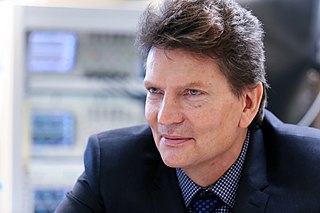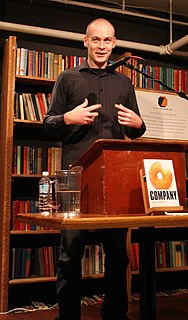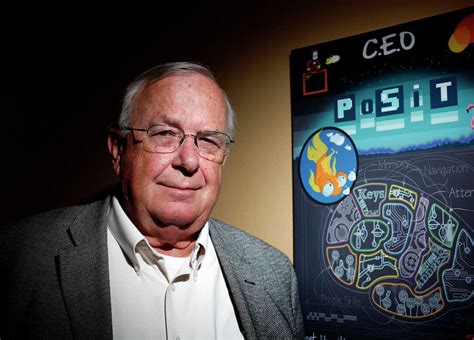A Quote by Jeff Hawkins
Prediction is not just one of the things your brain does. It is the primary function of the neo-cortex, and the foundation of intelligence.
Quote Topics
Related Quotes
We live in the Age of the Higher Brain, the cerebral cortex that has grown enormously over the last few millennia, overshadowing the ancient, instinctive lower brain. The cortex is often called the new brain, yet the old brain held sway in humans for millions of years, as it does today in most living things. The old brain can't conjure up ideas or read. But it does possess the power to feel and, above all, to be. It was the old brain that caused our forebears to sense the closeness of a mysterious presence everywhere in Nature.
The brain is a dynamic system that constantly processes and creates your reality. It works best if you balance all the things that the brain is good at. The brain is good at being adaptable, flexible, creative, and intelligent. But it's also good at playing and just being. A balanced life provides time - every day if possible - so that every function of the brain is allowed to come alive and flourish.
A fixed habit is supported by old, well-worn pathways in the brain. When you make conscious choices to change a habit, you create new pathways. At the same time, you strengthen the decision-making function of the cerebral cortex while diminishing the grip of the lower, instinctual brain. So without judging your habit, whether it feels like a good one or a bad one, take time to break the routine, automatic response that habit imposes.
First, Know well that Intellectuality is not intelligence. To be intellectual is to be phony; it is a pretending intelligence. It is not real because it is not yours; it is borrowed. Intelligence is the growth of inner consciousness. It has nothing to do with knowledge, it has something to do with meditativeness. An intelligent person does not function out of his past experience; he functions in the present. He does not react, he responds. Hence he is always unpredictable; one can never be certain what he is going to do.
Most of our brain cells are glial cells, once thought to be mere support cells, but now understood as having a critical role in brain function. Glial cells in the human brain are markedly different from glial cells in other brains, suggesting that they may be important in the evolution of brain function.
So, you can define emotions very simply as the process of perceiving what is going on in the organs when you are in the throws of an emotion, and that is achieved by a collection of structures, some of which are in the brain stem, and some of which are in the cerebral cortex, namely the insular cortex, which I like to mention not because I think it's the most important, it's not.



































